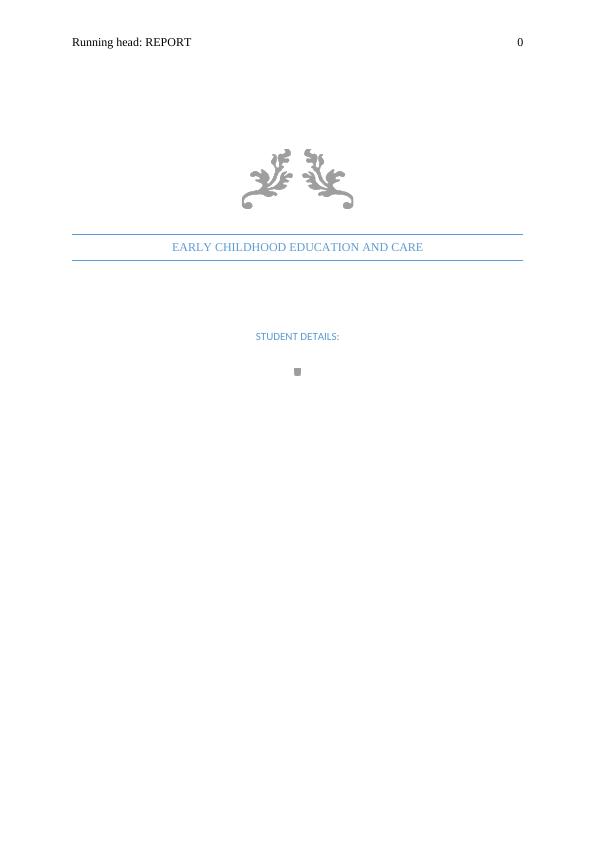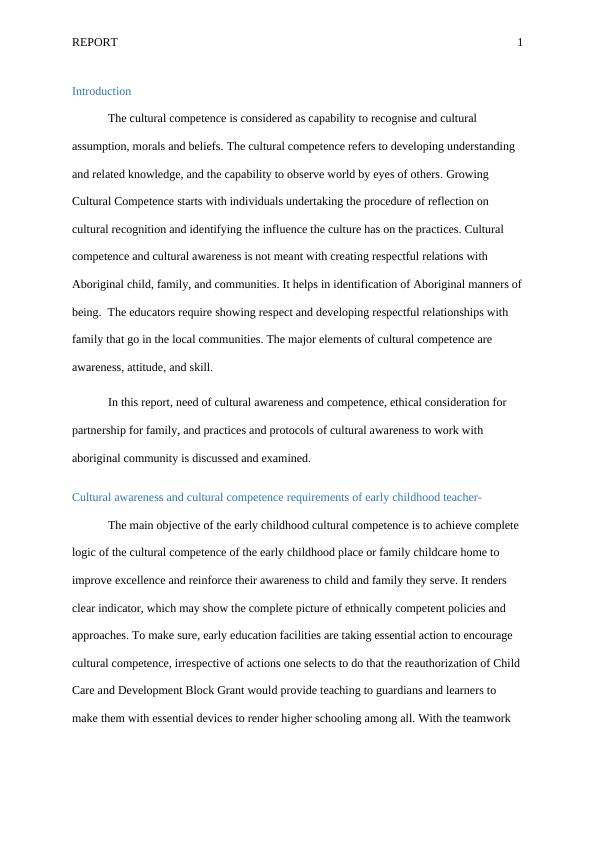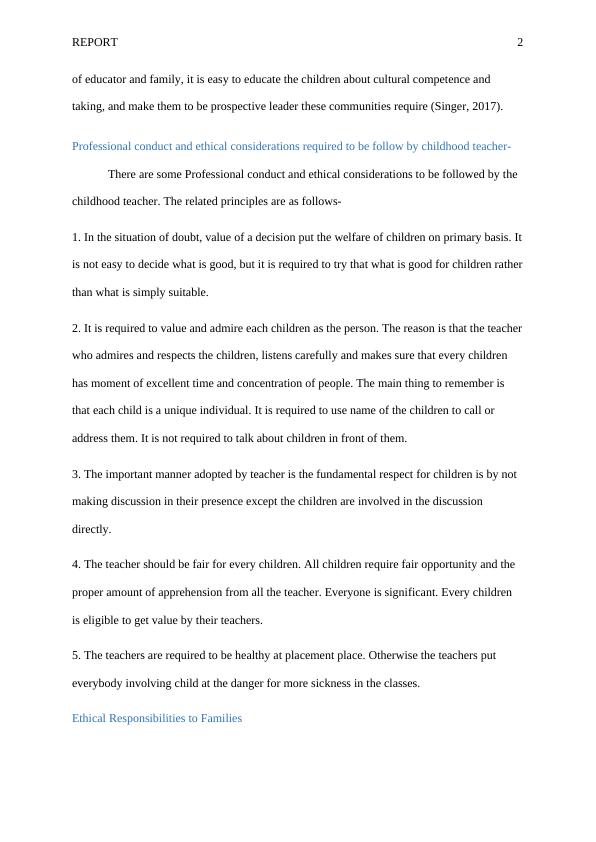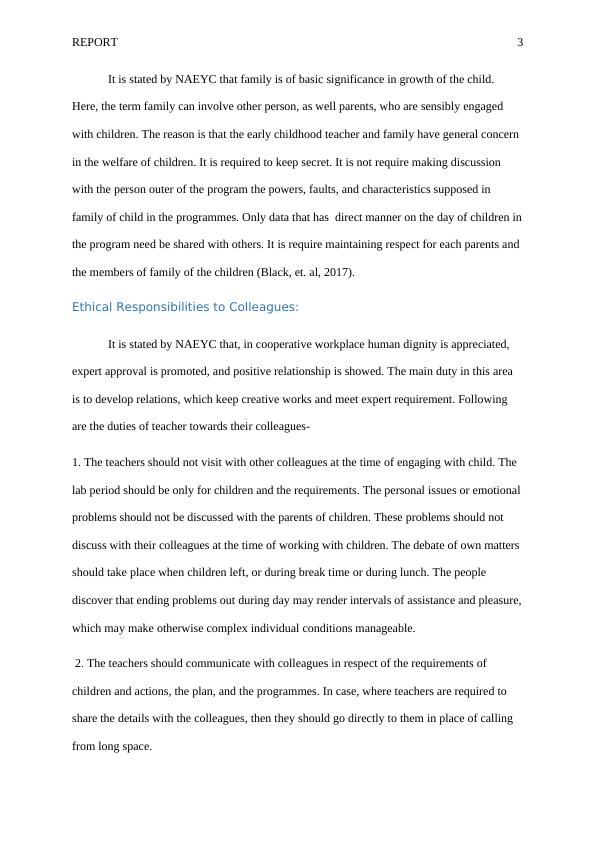Early Childhood Education and Care: Cultural Awareness and Ethical Considerations
13 Pages3402 Words268 Views
Added on 2023-06-04
About This Document
This report discusses the need for cultural awareness and competence, ethical considerations for partnership with families, and practices and protocols of cultural awareness to work with Aboriginal community in early childhood education and care.
Early Childhood Education and Care: Cultural Awareness and Ethical Considerations
Added on 2023-06-04
ShareRelated Documents
End of preview
Want to access all the pages? Upload your documents or become a member.
Early childhood education PDF
|16
|3331
|206
Cultural Awareness and Competence of Early Childhood Teacher
|15
|3507
|172
Cultural Awareness of Teachers in Early Childhood Education
|16
|3664
|166
Cultural Competency and Ethical Considerations in Early Childhood Education
|13
|3317
|68
Cultural Awareness and Competence in Early Childhood Education Care
|10
|3079
|409
Cultural Awareness and Competence of an Early Childhood Teacher
|12
|3647
|330




